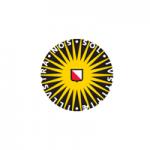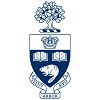项目介绍
PhD position within ERC-funded project RESPIRE to study intersectional power dynamics and socio-environmental in/justice through planetary breathing and suffocation.
Your job
The PhD position is a part of a research project RESPIRE: Planetary Breathing in Asphyxiating Times lead by Dr. Magdalena Górska external link and funded by the European Research Council external link. Your position will be fully funded for the duration of full time PhD studies (1 FTE) over 48 months.
The RESPIRE project focuses on how planet Earth breathes and suffocates at the current socio-political-environmental conjuncture. Breathing and suffocation are understood not as metaphors but as material processes of contemporary multispecies living and dying on this planet. RESPIRE explores their political dimensions by examining how power relations, climate change, and socio-environmental injustices are interconnected through the practice of planetary breathing. By addressing “planetary lungs” such as forests, oceans, and soil, RESPIRE investigates the crises of deforestation, oceanic dead zones, and peatland destruction as forms of multispecies breathing and suffocation. The multispecies approach mobilized in the project combines feminist posthumanist, decolonial, and abolitionist perspectives that enable to engage planetary breathing as a socio-environmental processes that are deeply embedded in geopolitical inequalities, colonial legacies and current (extractivist)colonialism, disparate impacts of climate change, and intersectional social inequalities that shape environmental and social in/justices.
The PhD position will entail both independent and collaborative work. Your independent work will be guided by your two supervisors Dr. Magdalena Górska external link and Prof. dr. Kathrin Thiele external link who will accompany you in your research and writing process, offer advice, and provide feedback. Your tasks will include:
Dissertation – you will have freedom to craft your own PhD project according to your specific research interests while the project also must address questions of planetary multispecies respiration and asphyxiation in relation to the fieldwork research site located in the Venetian lagoon in Italy, Bargerveen peatland reserve in the Netherlands, and Katrineholm forest in Sweden. These locations were selected for RESPIRE with specific criteria in mind: they are sites of specific breathing and suffocation (dead-zone, deforestation, peatland restoration – all with their not only environmental but also socio-political, local and geopolitical dimensions) and they are located in Western Europe. While it might be tempting to investigate planetary respiration by conducting research at sites across the globe, the project will be carried out in Europe to limit RESPIRE’s carbon footprint (as the project is located in Utrecht, the Netherlands). In the context of decolonial criticism of West-centrism of academia Western Europe serves in the project as a case study for a planetary, yet site-specific, situated, non-universalist, analysis which works critically with Europe’s inner socio-environmental differentiations and global geopolitical positioning. As part of the project, the team members (you, a Postdoc, and Magdalena Górska) will develop a respiratory socio-environmental approaches embedded in a critical attention to the local, national, and geopolitical dimensions of power relations at the research locations and work with decolonial and abolitionist criticism and interventions towards Europe itself. In examining situated planetary breathing, you will focus not only on human but also on more-than-human relations and multispecies assemblages that constitute planetary breathing. These are the frameworks in which you will work on your PhD research while you will have a freedom to develop the project through your own unique perspective.
You will write two articles that focus specifically on your research.
You will be a part of the RESPIRE research team that consists of you, a Postdoc, and Magdalena Górska. The teamwork will include yearly fieldwork visits (three months of fieldwork per year during years 1-3 of your PhD), knowledge exchange visits, co-creating a lecture collection from the RESPIRATORIUM lecture series, co-organising a summer school, and participating in a PhD writing seminar.
While this position entails specific framing because it is a part of a larger project, it is crucial that you embrace your own specific expertise and research interests. You will develop your own critical respiratory perspective, thinking, and researching practice while you will also benefit from a team in which we will collectively engage with relevant knowledges and social and environmental problems.
Your qualities
The ideal candidate for this PhD position has:
- a Master’s degree in a relevant scientific discipline in the Humanities or Social Sciences, such as Gender Studies, Critical Theory, Cultural Studies, Postcolonial Studies, Decolonial Studies, Critical Race Studies, Posthumanities, Environmental Humanities, Feminist and Queer philosophy;
- focused their research and/or activism on problems of social inequality, and/or environmental inequality, and/or geopolitical inequality from a critical feminist queer, and/or trans, and/or postcolonial and/or decolonial perspective;
- is eager to learn about deforestation, dead-zones, and peatlands from an interdisciplinary perspective (including natural sciences), and develop their multispecies and more-than-human, power-critical analysis;
- is eager to develop decolonial and/or abolitionist approach to researching in the European context;
- has a critical approach to research methods and a strong sense for developing anti-extractivist and co-creation oriented research practices;
- an excellent command English language;
- excellent academic writing skills;
- preferably (but not necessarily) previous knowledge of Critical Respiratory Studies and critical research methods in the humanities.
Our offer
We offer:
- Research benefits related to the RESPIRE project: full funding of fieldwork travel and accommodation, full funding of travel and accommodation for the knowledge exchange visits, small conference travel budget;
- a position for 18 months. In case of good performance and a positive evaluation, the contract will be extended for the remaining period of 30 months (4 years in total);
- a working week of 36-40 hours and a gross monthly salary between €2.901 and €3.707 in the case of full-time employment (salary scale P under the Collective Labour Agreement for Dutch Universities (CAO NU));
- 8% holiday pay and 8.3% year-end bonus;
- a pension scheme, partially paid parental leave and flexible terms of employment based on the CAO NU.
In addition to the terms of employment external link laid down in the CAO NU, Utrecht University has a number of schemes and facilities of its own for employees. This includes schemes facilitating professional development external link, leave schemes and schemes for sports and cultural activities external link, as well as discounts on software and other IT products. We also offer access to additional employee benefits through our Terms of Employment Options Model. In this way, we encourage our employees to continue to invest in their growth. For more information, please visit Working at Utrecht University external link.
About us
A better future for everyone. This ambition motivates our scientists in executing their leading research and inspiring teaching. At Utrecht University external link, the various disciplines collaborate intensively towards major strategic themes external link. Our focus is on Dynamics of Youth, Institutions for Open Societies, Life Sciences and Pathways to Sustainability. Sharing science, shaping tomorrow external link.
The Faculty of Humanities external link has around 7,000 students and 1,100 staff members. It comprises four knowledge domains: Philosophy and Religious Studies, History and Art History, Media and Culture Studies, and Languages, Literature and Communication. With its research and education in these fields, the Faculty aims to contribute to a better understanding of the Netherlands and Europe in a rapidly changing social and cultural context. The enthusiastic and committed colleagues and the excellent amenities in the historical city centre of Utrecht, where the faculty is located external link, contribute to an inspiring working environment.
Our department of Media and Culture Studies external link has a staff with a variety of backgrounds, skills, and views. As a department, we are committed to support our staff and their development and we foster various forms of interdisciplinary collaboration and team-based teaching and research. In our department, we study a wide range of media as well as cultural and artistic expressions, also in their intermedial relations. We interpret culture as a dynamic combination of artistic, creative, and everyday activities that people use to shape their identities, and within which social processes, structures and institutions are shaped. We welcome colleagues who can further strengthen the diversity of perspectives and backgrounds in our department.
You will be a part of Gender, Culture, and Postcoloniality Cluster external link at the department of Media and Culture studies and the Netherlands Research School of Gender Studies external link.
As PhD candidate you will be member of the Institute for Cultural Inquiry external link (ICON). ICON is one of the four research institutes of the Faculty of Humanities. The researchers are working in six different research fields. PhD candidates are also embedded in the Graduate School of Humanities, which offers seminars and courses to improve your academic skills.
More information
For more information, please contact Magdalena Górska external link at m.a.gorska@uu.nl.
Candidates for this vacancy will be recruited by Utrecht University.
Apply now
As Utrecht University, we want to be a home external link for everyone. We value staff with diverse backgrounds, perspectives and identities, including cultural, religious or ethnic background, gender, sexual orientation, disability or age. We strive to create a safe and inclusive environment in which everyone can flourish and contribute.
To apply, please send the following documentation via the ‘apply now’ button:
- your CV;
- a writing sample in English, which can be a chapter of your thesis, a final paper you wrote for one of your courses, a published article. The goal of reading your writing sample is to learn more about you, your research interests, and your writing;
- the names and contact information of two persons who can provide references;
- your motivation letter (length: up to 1500 words) that explicitly addresses (but is not limited to) the following questions:
- What motivates you to do PhD research?
- What intervention would you like to make in the current socio-political-environmental conjuncture?
- How do you understand breathing and suffocation as research topics?
- What are the theories/activist/artistic practices that impacted you the most so far and how would you link them to the problem of planetary respiration and asphyxiation?
- What specific problems would you like your PhD project to intervene into?
- How would you describe a research practice you would like to develop during your PhD (e.g., question of methods, relation of theory and society)?
- How do you work in a team and individually?
Selection schedule:
- Invitation to the first interview: 1.2.2025
- First interview (online): 7.2.2025
- Second interview (in-person, in Utrecht, the Netherlands): 14.2.2025
The start of the position is ideally 1.04.2025 but can be modified according to the visa and relocation process.
The application deadline is 19 January 2025.
联系方式
电话: +31 (0)30 253 35 50相关项目推荐
KD博士实时收录全球顶尖院校的博士项目,总有一个项目等着你!





